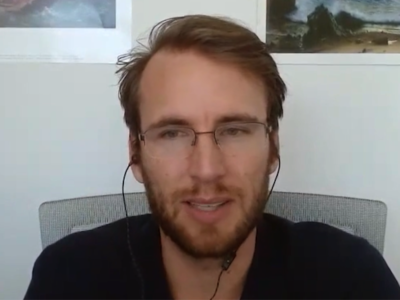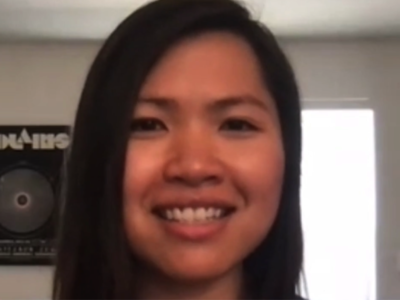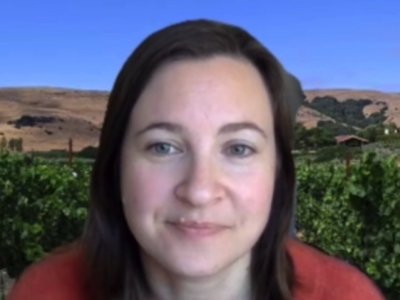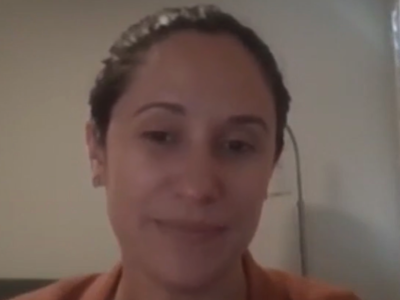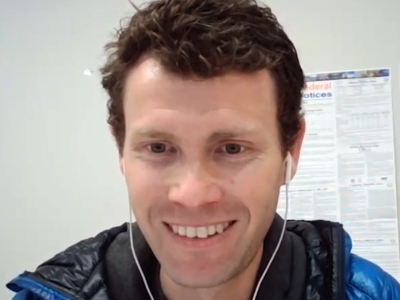Demystifying Deep Tech Manufacturing Series
Video Descriptions & Details
Introduction
Andrew Gillies – 0:00
Maria Telleria – 0:00
Sarah Placella – 0:00
Tra Vu – 0:00
Marcus Lehmann – 0:00
Company Description
Andrew Gillies – (Urban Machines) 1:55 ✓
Can you describe Dash robotics? Andrew Gillies – 3:56 ✓
Maria Telleria – (Canvas) 2:09 ✓
Sarah Placella – (Root Applied Science) 2:29 ✓
Tra Vu – (Omni Telepresence Robot) 7:23 ✓
Company Description: Marcus Lehmann – (Calwave) 2:19 ✓
How long has Root Applied Science been active and what other startups have you worked for?
Sarah Placella – 3:20 ✓
What are the differences between the construction industry and the toy industry?
Andrew Gillies – 2:26 ✓
How do robots contribute to worker safety
Maria Telleria – 4:25 ✓
Scaling to Production
What were your biggest challenges going from a lab prototype to production?
Andrew Gillies – 10:02 ✓
Maria Telleria – 20:24 ✓
Were there any issues you found that required a redesign to manufacture innovative products at scale?
Andrew Gillies – 20:01 ✓
How did you complete the transition to large-scale manufacturing?
Andrew Gillies – 15:25 ✓
How did you cut electronics costs?
Andrew Gillies – 24:35 ✓
Has the complexity of your product made it harder for you to get to market?
Maria Telleria – 4:14 ✓
How did you develop to get to your current stage?
Maria Telleria – 9:17 ✓
Did any part of going to production take a lot longer than expected?
Maria Telleria – 21:58 ✓
How did you scale 3D printing at production requirements?
Tra Vu – 14:24 ✓
How does TRL help explain the difference between deep tech development and regular product development?
Marcus Lehmann – 14:26 ✓
Other than sourcing, did you run into any further critical bottlenecks scaling to pilot production?
Marcus Lehmann – 17:25 ✓
What were the surprises you encountered during pilot development?
Marcus Lehmann – 27:50 ✓
Product Design
Can you describe the research for the basis of Dash robots?
Andrew Gillies – 5:43 ✓
What were the challenges you faced with power consumption?
Andrew Gillies – 28:20 ✓
What challenges did you face with regulatory testing and standards?
Andrew Gillies – 31:00 ✓
What are the challenges of working with soft robotics?
Maria Telleria – 6:54 ✓
What is an example of the off the shelf technology you adapted
Maria Telleria – 13:39 ✓
What was your prototyping process
Sarah Placella – 7:17 ✓
What criteria did you use to select your components?
Sarah Placella – 13:10 ✓
How do you decided what quality is required
Sarah Placella – 16:03 ✓
How did you handle the transition from prototype to demonstration unit when there is no generally accepted system architecture for wave power?
Marcus Lehmann – 3:44 ✓
Manufacturing
How did you find your manufacturing partners?
Maria Telleria – 15:48 ✓
How do you manufacture your product? What is the breakdown between in-house and contract?
Maria Telleria – 11:36 ✓
How were the first units manufactured?
Tra Vu – 10:12 ✓
What characteristics did you look for in a manufacturing space?
Tra Vu – 21:34 ✓
How did you implement flooring in your manufacturing?
Tra Vu – 23:22 ✓
How do you manage variability in a 3D printing farm?
Tra Vu – 26:24 ✓
How did you decide to in-source system modules?
Tra Vu – 31:17 ✓
How do you balance domestic and international outsourcing?
Marcus Lehmann – 20:04 ✓
Advise and Support
How do you engage with experts to help you through the process?
Andrew Gillies – 21:42 ✓
Sarah Placella – 17:59 ✓
Tra Vu – 36:27 ✓
Marcus Lehmann – 23:35 ✓
What were the skills you had that helped in the process and what skills did you need to develop?
Maria Telleria – 26:41 ✓
Sarah Placella – 19:56 ✓
Tra Vu – 2:19 ✓
What are some useful platforms and tools you found?
Andrew Gillies – 35:32 ✓
Maria Telleria – 28:57 ✓
Sarah Placella – 24:06 ✓



